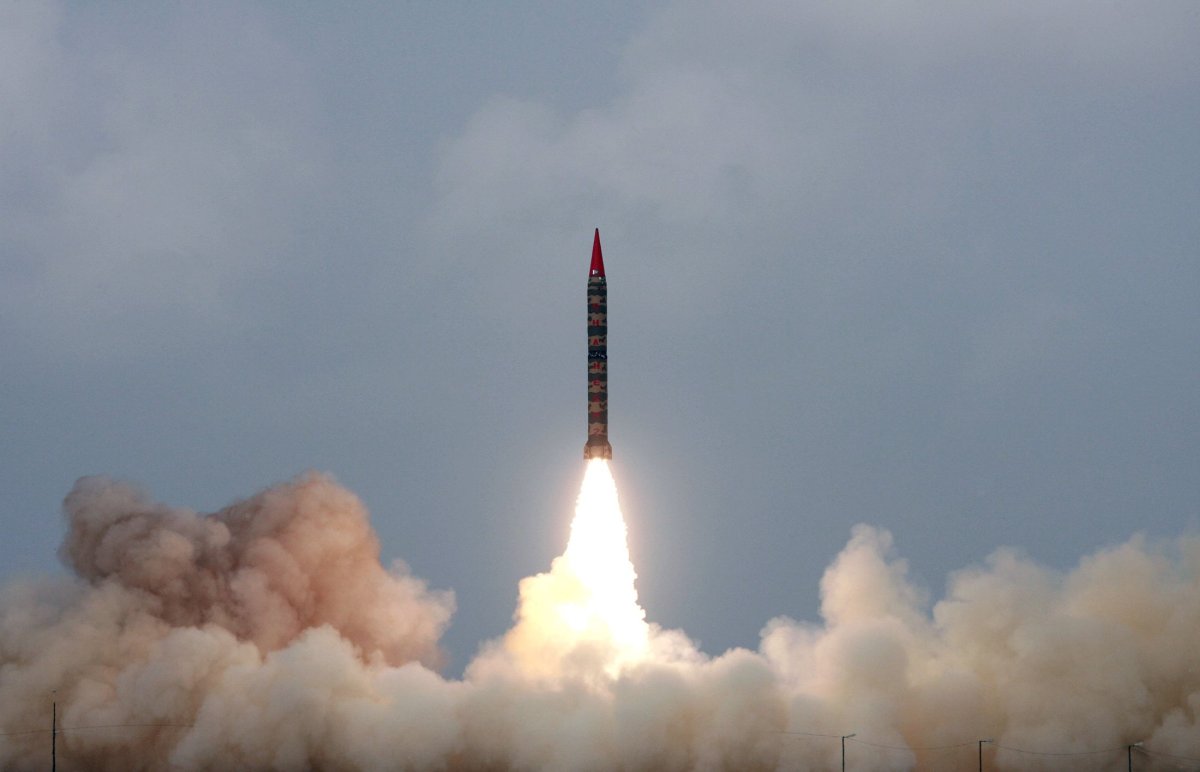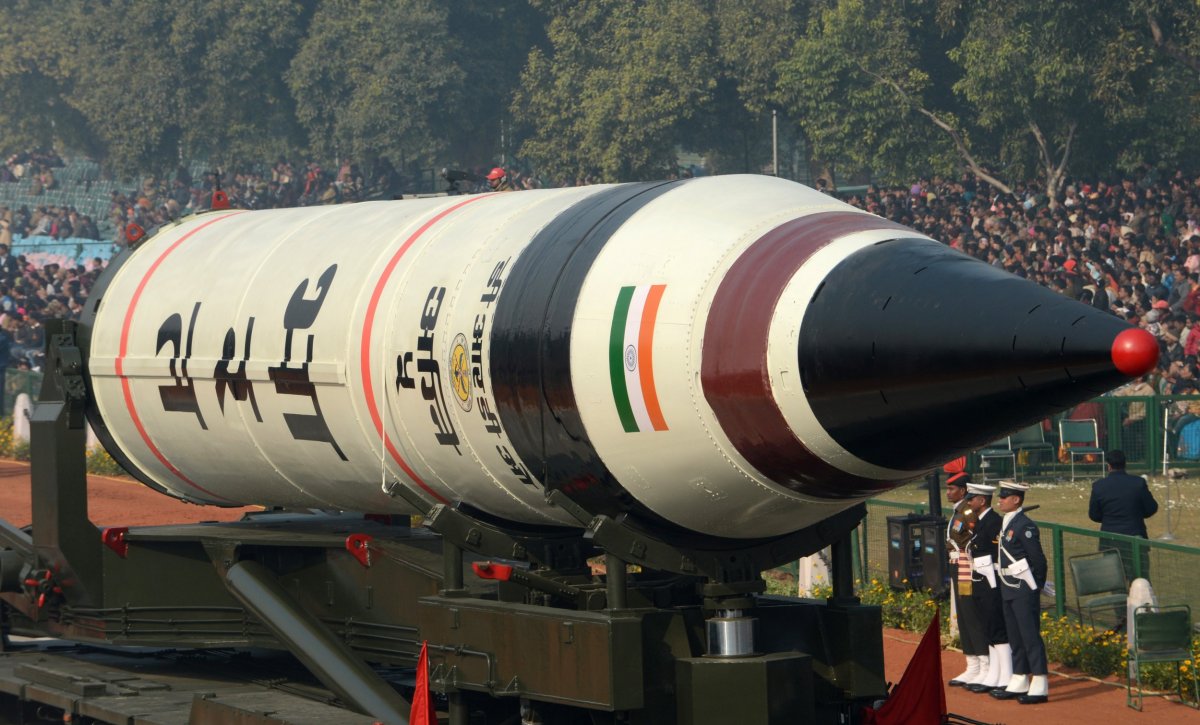China has admitted it sold advanced missile technology to Pakistan, fueling the ballistic missile arms race developing between the Islamic republic and its arch-rivals India.
The "highly sophisticated large-scale optical tracking and measurement system" will improve Pakistan's development of its multi-warhead ballistic missiles, the South China Morning Post reported, and put further strategic pressure on an Indian military facing major rivals on both the north and western borders.
The deal has emerged two months after India successfully tested its Agni V nuclear-capable ballistic missile. The missile has a reported range of 5,000 miles, putting Beijing and Shanghai within its reach.

The deal for the optical tracking and measurement system was announced by the Chinese Academy of Sciences (CAS). The cutting-edge system captures and follows moving targets, recording high-resolution images and collecting detailed data on the trajectory and behaviour of missiles and warheads being tested.
The Post reported that a Chinese team spent three months in Pakistan calibrating the syste, training Pakistani personnel on its use. The performance of the system "surpassed the user's expectations," and far outstripped the capability of Pakistan's existing technology, the CAS said.
Access to such technology will help Pakistan close the gap on its cross-border nuclear rival. The country has been developing multiple independently targetable re-entry vehicles (MIRVs), which are missiles carrying multiple nuclear warheads aimed at several different targets. In January 2017, Pakistan conducted the first test of its Ababeel MIRV missile, which the U.S. Defence Intelligence Agency said was "South Asia's first MIRV payload."
Although India's single-warhead nuclear missiles are bigger and can go further, an MIRV strike would allow Pakistan to hit hard with a minimal number of missiles. In response to the threat, India is working on missile defense systems that underwent several successful tests in 2017.

Formed out of British India, India and Pakistan have gone to war four times since they became independent nations in 1947. In between these conflicts, near-constant and deadly border skirmishes have continued.
India and Pakistan conducted their first nuclear weapon tests within one day of each other in May 1998. Since then, they have tried to keep pace with one another's missile and nuclear programs.
China and India also view each other as regional rivals and have clashed over the Himalayan border that separates the two countries. With the U.S. taking a harder line on Pakistan under President Donald Trump, China has stepped in to provide military guidance and put pressure on India's western border.
China has sold Pakistan a wide variety of conventional weapons, including warships, fighters, short-range missiles, submarines and surveillance drones, the Post said. In 2017, for example, Pakistan deployed $373 million worth of Chinese-made anti-air missile systems to guard against Indian warplanes.

Uncommon Knowledge
Newsweek is committed to challenging conventional wisdom and finding connections in the search for common ground.
Newsweek is committed to challenging conventional wisdom and finding connections in the search for common ground.
About the writer
David Brennan is Newsweek's Diplomatic Correspondent covering world politics and conflicts from London with a focus on NATO, the European ... Read more
To read how Newsweek uses AI as a newsroom tool, Click here.








